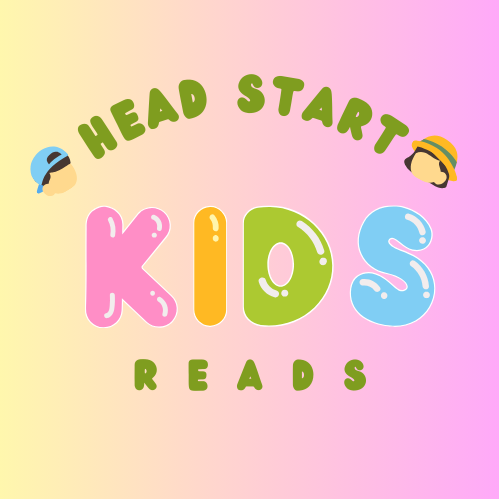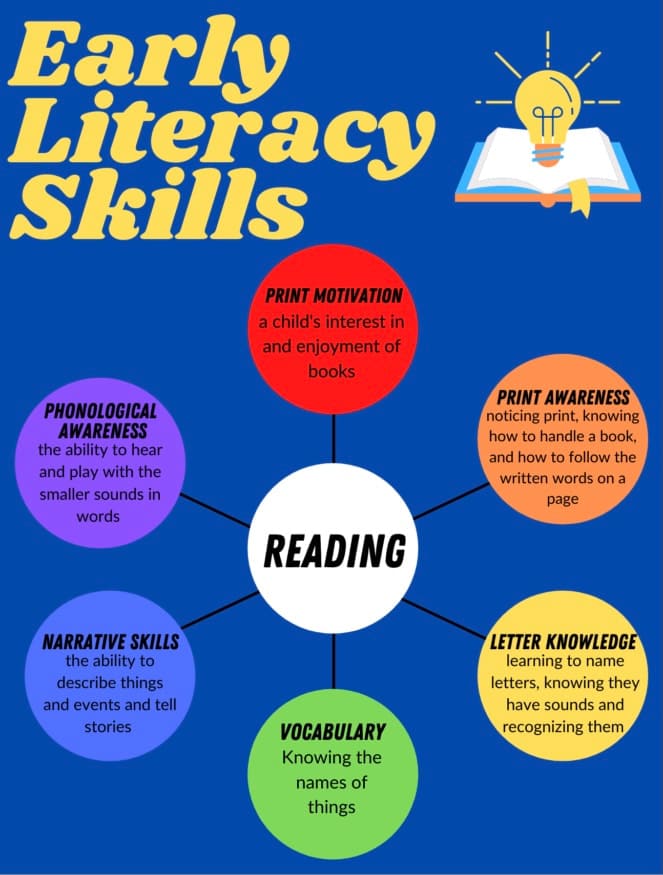The journey of a child into the world of literacy begins long before they step into a classroom. Early literacy plays a pivotal role in shaping not just academic success but the overall trajectory of a child’s future. In this article, we delve into the profound implications of early literacy on a child’s development, exploring the cognitive, social, and emotional benefits that pave the way for a brighter future. Anchored in this exploration is the innovative Reading Head Start Program, masterminded by the visionary Sarah Shepard, which stands as a beacon in the realm of early literacy education.
I. Cognitive Foundations: Building the Architecture of Learning
- Enhanced Brain Development: Early literacy acts as a catalyst for enhanced brain development. The process of learning to read stimulates neural connections, particularly in areas associated with language processing and comprehension. These early cognitive foundations set the stage for advanced learning and academic success in the future.
- Reading Head Start’s Cognitive Approach: The Reading Head Start Program, designed by Sarah Shepard, aligns with the understanding of early cognitive development. Through carefully crafted activities and interactive learning experiences, the program stimulates cognitive growth, ensuring that children are not only learning to read but are also building a robust cognitive architecture for future academic endeavors.
II. Language Proficiency: A Key to Communication and Academic Success
- Expanding Vocabulary: Early literacy exposure expands a child’s vocabulary, setting the foundation for effective communication and language proficiency. A rich vocabulary is not only essential for academic success but also enhances a child’s ability to express ideas, thoughts, and emotions.
- Reading Head Start’s Emphasis on Language Richness: Reading Head Start places a strong emphasis on language-rich experiences. By introducing children to diverse words, stories, and language structures, the program contributes to the development of a robust vocabulary. Sarah Shepard’s vision for the program recognizes the pivotal role language plays in a child’s overall development.
III. Academic Preparedness: A Head Start for Future Success
- Seamless Transition to Formal Education: Children who experience early literacy are better equipped for a seamless transition to formal education. Early readers often enter school with a familiarity with letters, sounds, and basic reading skills. This familiarity provides them with a head start, positioning them for success in the early years of formal education.
- Reading Proficiency in Primary Grades: Early literacy is linked to reading proficiency in the primary grades. Children who learn to read early often exhibit higher levels of reading comprehension and language skills. The Reading Head Start Program, with its structured curriculum, nurtures foundational reading skills, ensuring that children progress confidently through the academic journey.
IV. Cultivating a Love for Reading: A Lifelong Affection for Learning
- Positive Reading Identity: Early literacy exposure contributes to the development of a positive reading identity. Children who associate reading with joy and curiosity are more likely to become lifelong learners. The Reading Head Start Program recognizes the importance of fostering a love for reading, creating an environment where learning becomes a source of pleasure.
- Lifelong Literacy Habits: Reading Head Start goes beyond teaching basic reading skills; it aims to cultivate lifelong literacy habits. By incorporating engaging stories, interactive sessions, and gamified activities, the program instills a passion for literature that endures beyond formal education. Sarah Shepard’s commitment to lifelong learning shines through in the program’s approach to early literacy.
V. Enhanced Cognitive Skills: A Foundation for Critical Thinking
- Stimulating Critical Thinking: Early literacy exposure stimulates the development of critical thinking skills. The process of decoding and comprehending written language enhances cognitive abilities, including problem-solving, reasoning, and analytical thinking. These skills form the bedrock for success in various academic and professional pursuits.
- Reading Head Start’s Focus on Critical Thinking: Reading Head Start, under Sarah Shepard’s guidance, integrates activities that promote critical thinking. By encouraging children to engage with stories, ask questions, and draw connections, the program nurtures a mindset of inquiry and analysis. This focus on critical thinking prepares children for the intellectual challenges they may encounter in their future endeavors.
VI. Social and Emotional Well-Being: Fostering Confidence and Resilience
- Boosted Confidence: Early literacy success boosts a child’s confidence. Mastering the skill of reading at an early age becomes a milestone that instills a sense of accomplishment and self-assurance. This confidence extends beyond the realm of literacy, positively influencing a child’s approach to various challenges.
- Fostering Resilience: The process of learning to read involves overcoming challenges, fostering resilience in young learners. Children who navigate the complexities of literacy development develop a growth mindset, understanding that effort and perseverance lead to success. This resilience becomes a valuable asset in facing future challenges.
VII. Parent-Child Bonding: Building Strong Foundations at Home
- Quality Time Through Reading: Early literacy provides opportunities for quality parent-child bonding. Shared reading experiences create lasting memories and strengthen the parent-child relationship. Reading Head Start actively involves parents, encouraging them to participate in their child’s learning journey and fostering a supportive and nurturing environment at home.
- Building Strong Family Literacy Habits: Families that engage in early literacy activities build strong family literacy habits. Reading Head Start recognizes the pivotal role of parents in a child’s literacy development and provides resources and guidance to empower families in cultivating a culture of literacy at home. This family-centric approach contributes to a child’s holistic development.
VIII. Prevention of Reading Difficulties: Early Intervention for Success
- Mitigation of Reading Challenges: Early literacy programs, like Reading Head Start, allow for the early identification and mitigation of potential reading difficulties. Early intervention is key to addressing challenges and providing children with the necessary support. The structured curriculum of Reading Head Start caters to individual learning needs, ensuring that no child is left behind.
- Preparedness for Future Literacy Demands: Early readers are better prepared to meet the literacy demands of higher academic levels. They have a solid foundation in decoding, comprehension, and critical thinking skills. Reading Head Start prepares children not just for immediate reading success but equips them with the tools needed to excel in future literacy endeavors.
IX. Technology-Integrated Learning: Navigating the Digital Landscape
- Adapting to the Digital Era: Early literacy programs must adapt to the digital era. Reading Head Start recognizes the importance of technology in education and seamlessly integrates digital tools into its curriculum. This adaptation prepares children for the digital landscape they will encounter in their academic and professional journeys.
- Digital Literacy in Reading Head Start: Sarah Shepard’s vision for Reading Head Start includes a commitment to digital literacy. The program utilizes technology to enhance the learning experience, offering interactive online platforms, digital books, and engaging activities. This holistic approach ensures that children are not only proficient in traditional literacy but are also prepared for the digital aspects of their future endeavors.
X. Introduction to Multicultural Perspectives: Fostering Global Awareness
- Cultural Diversity in Literature: Early literacy programs can introduce children to multicultural perspectives through literature. Reading Head Start embraces this approach by incorporating diverse stories that reflect different cultures, traditions, and experiences. Exposure to diverse literature fosters global awareness and empathy.
- Reading Head Start’s Multicultural Embrace: Sarah Shepard’s vision for Reading Head Start extends beyond basic literacy. The program actively includes literature that promotes cultural diversity, enriching the learning experience and preparing children to navigate a globalized world with open-mindedness and understanding.
XI. Transition to Lifelong Learning: A Gift Beyond Academics
- A Lifelong Learning Mindset: Early literacy serves as the gateway to a lifelong learning mindset. Children who experience success in reading develop a positive attitude toward learning, understanding that knowledge is a continuous journey. Reading Head Start’s focus on cultivating this mindset ensures that children approach education with curiosity and enthusiasm.
- Sarah Shepard’s Commitment to Lifelong Learning: The visionary Sarah Shepard, creator of Reading Head Start, is deeply committed to the concept of lifelong learning. Her program goes beyond teaching reading skills; it instills in children a passion for exploration, inquiry, and a lifelong love for learning. This commitment sets the stage for a future generation of individuals who approach the world with intellectual curiosity.
Conclusion:
The implications of early literacy on a child’s future are profound and far-reaching. Early readers embark on a journey that not only positions them for academic success but also nurtures cognitive, social, and emotional well-being. The Reading Head Start Program, guided by the visionary Sarah Shepard, stands as a testament to the transformative power of early literacy education. As we navigate the landscape of a child’s future, let us embrace the rich potential embedded in early literacy, recognizing it as a gift that goes beyond academics—a gift that shapes resilient, confident, and intellectually curious individuals poised for a future of boundless possibilities.

